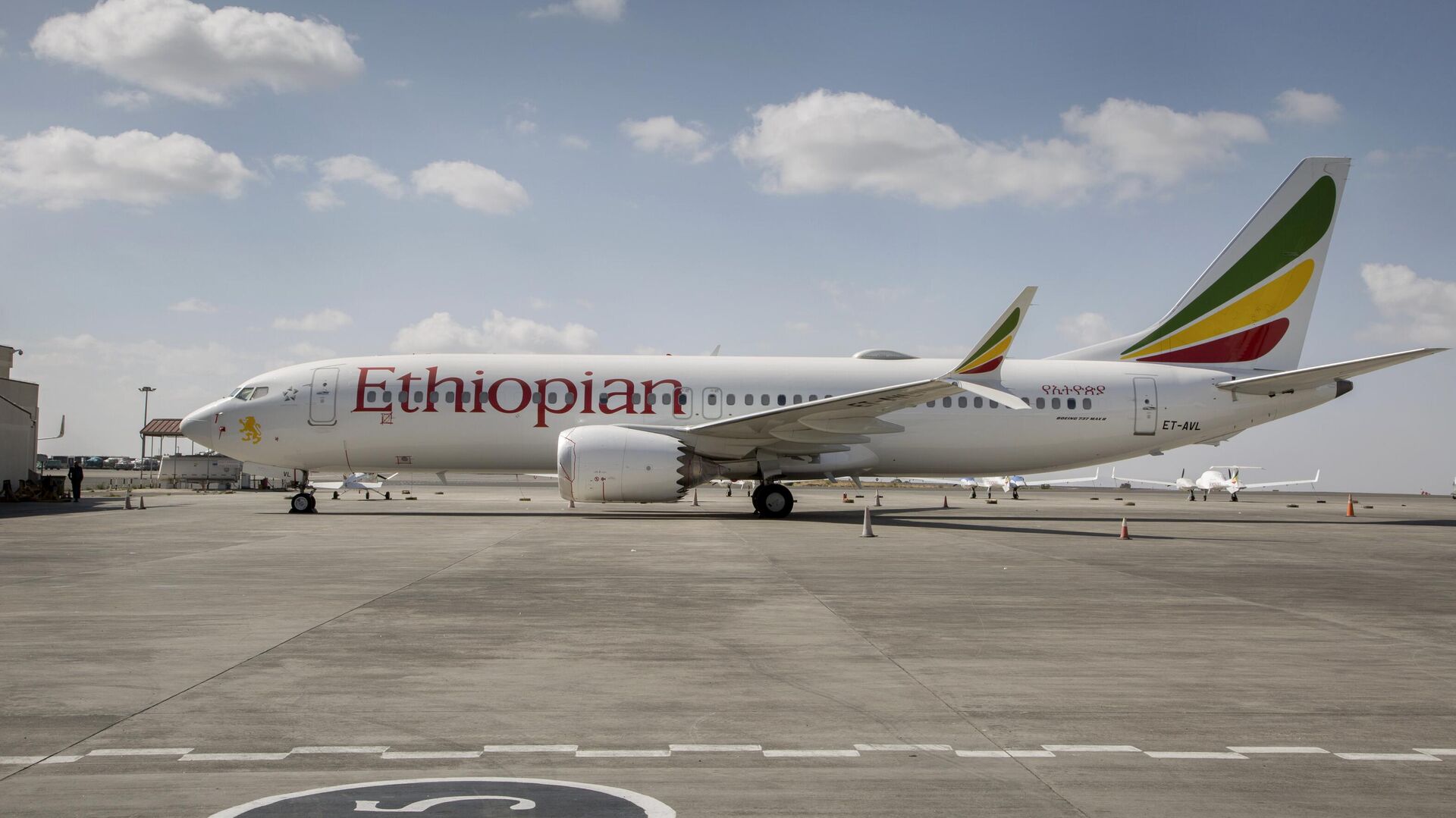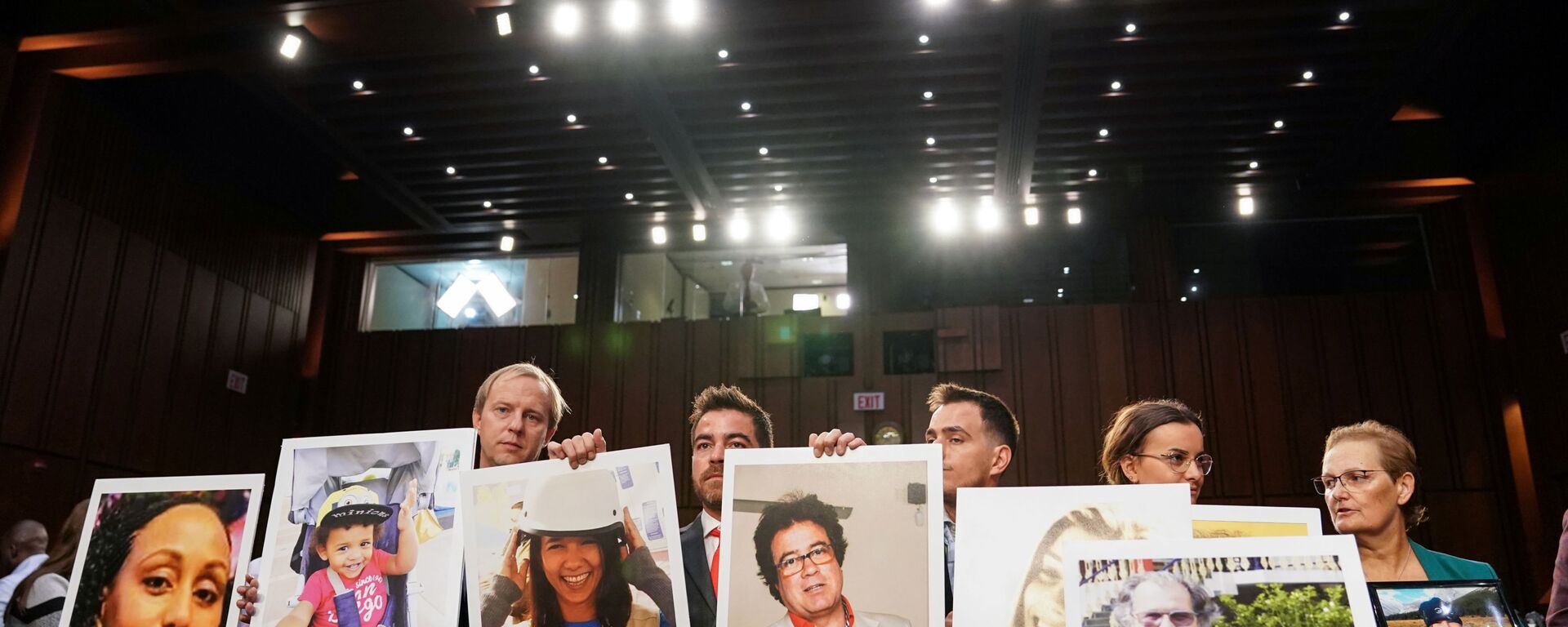https://sputnikglobe.com/20230126/is-boeing-to-confront-fraud-charges-or-will-washington-intervene-at-the-eleventh-hour-1106737012.html
Is Boeing to Confront Fraud Charges or Will Washington Intervene at the Eleventh Hour?
Is Boeing to Confront Fraud Charges or Will Washington Intervene at the Eleventh Hour?
Sputnik International
Boeing is being charged with conspiracy to commit fraud related to the crashes of two 737 Max commercial planes in Indonesia in 2018 and Ethiopia in 2019... 26.01.2023, Sputnik International
2023-01-26T17:12+0000
2023-01-26T17:12+0000
2023-01-26T17:44+0000
sputnik explains
us
boeing
boeing 737
ethiopia
ethiopian airlines
crash
fraud
us government
barack obama
https://cdn1.img.sputnikglobe.com/img/07e6/0c/1b/1105817708_0:140:3147:1910_1920x0_80_0_0_9961b9c954eb7f35bbff5f0e9d6e2066.jpg
US airline maker Boeing has been forced to testify in a Texas federal court this January 26 over two fatal accidents from 2018 and 2019. It faces charges of conspiracy to commit fraud.The trial comes after District Judge Reed O’Connor of Fort Worth overturned the planemaker’s January 2021 immunity deal with the US Justice Department (DoJ).On October 29, 2018, a Lion Air-operated Boeing 737 Max 8 ditched into the Java Sea just minutes after taking off from the Indonesian capital of Jakarta. The crash claimed the lives of 189 people.Five months later, a Boeing 737 Max 8 operated by Ethiopian Airlines crashed on March 10, 2019, after taking off from Addis Ababa, Ethiopia, killing all 157 people on board. Both tragedies were attributed to flaws in the flight control system known as the maneuvering characteristics augmentation system (MCAS) on the 737 Max aircraft. MCAS was supposed to evaluate sensor data and push the plane’s nose down to keep it from stalling if it rose too high. Reportedly, in both tragic cases sensor failures sent the aircraft into a nosedive the pilots were unable to prevent.Boeing admitted in court documents that it deceived the Federal Aviation Administration’s Aircraft Evaluation Group (FAA AEG) about the working of the MCAS. Because of this deception, a key document published by the FAA AEG lacked information about MCAS, and in turn, airplane manuals and pilot-training materials for US-based airlines lacked orientations about the system. Pilots flying the 737 MAX for Boeing’s airline customers were not provided with any information about MCAS in their manuals and training materials, either.Following the two crashes, the FAA AEG learned that MCAS may have played a role in the accident and also learned that Boeing concealed important information about the malfunctioning system from the regulator. To save face, Boeing entered into an agreement with the US DoJ in January 2021 to resolve a criminal charge related to a conspiracy to defraud the FAA AEG. The company was ordered to pay $2.5 billion in penalties and compensations.Two years later, US District Court Judge Reed O'Connor of the Northern District of Texas reopened the case, explaining his decision by the fact that the victims’ families were not included in the $2.5 billion settlement deal, which would be mandatory under the Crime Victims’ Rights Act.O'Connor also ruled that "the crime victims' representatives" would be heard "at or in advance of the proceeding." He also stressed that Boeing "has no right to waive its appearance," meaning that the company will be formally charged in court and will have to plead guilty or not guilty.Unusual Rebuttal from US GovernmentHowever, an unusual government rebuttal of the Ethiopian Accident Investigation Bureau's (EAIB) December 2022 report related to the 2019 crash popped up in the US mainstream media earlier this week.According to the US National Transportation Safety Board (NTSB), Ethiopian investigators’ report into the Boeing 737 Max crash outside Addis Ababa in 2019 falsely claimed the plane had an electrical failure.Even though US investigators generally agreed that a flawed design in the 737 Max pushed the plane's nose down, the NTSB insisted that the Ethiopian Airlines Group crew had been told how to counteract a failure of MCAS after the October 2018 crash of the Indonesian plane. According to the agency, the Ethiopian pilots failed to follow procedure.On top of that, NTSB Chairwoman Jennifer Homendy accused Ethiopians of "not operating in good faith with the International Civil Aviation Organization (ICAO) rules.""[W]e feel that we have to be very public where we think there were inaccuracies in the report and where we think it could be more comprehensive," Homendy told the US mainstream media.Earlier, the French Bureau of Investigation and Analysis for Civil Aviation Safety – which participated in the investigation into the 2019 crash – also subjected the Ethiopian findings to criticism, accusing their African peers of allegedly erasing from its transcript of the cockpit recorder comments made by a copilot apparently showing he was confused.US-Boeing Special RelationshipIt's not the first time that the US government has stepped forward to shield Boeing. In September 2010, the World Trade Organization’s Dispute Settlement Body released an interim report saying that Boeing had received illegal US government and state subsidies. The suit against Boeing was filed by the EU in October 2004 – on the very same day that the US initiated a WTO dispute against the European bloc for subsidies granted to Airbus. The trade face-off lasted for 17 years until Washington and Brussels resolved the dispute in June 2021.The US government has a good reason to fight for Boeing. The company is one of the largest global aerospace manufacturers. It's also one of the largest defense contractors in the world, and the largest exporter in the United States. Boeing pays hefty taxes and spends a lot on lobbying. According to OpenSecrets, Boeing forked out a whopping $9.1 million for lobbying in 2022, while in 2019, it spent $15.1 million lobbying the federal government.Furthermore, Boeing has long maintained close ties with US top government officials. Speaking to Sputnik in November 2017, US peace activist Jan R. Weinberg lamented the US establishment's "revolving door" culture. To illustrate his point, Weinberg noted that then-US President Barack Obama assigned CEOs from Boeing, GE and Lockheed Martin to serve on his trade and employment advisory councils while they simultaneously served on the Business Roundtable, which is a very influential lobbying organization in its own right.Thus, Boeing CEO James McNerney, the Business Roundtable Chairman, served at the same time as a member of the President's Export Council, whose main purpose was to advise on trade agreements, under Obama.According to Weinberg, Obama's successor Donald Trump did virtually the same, opening the doors to US influential business contractors. For instance, Trump tapped a former Boeing executive, Patrick M. Shanahan, as acting defense secretary, and allowed Boeing chief executive Dennis Muilenburg to sit in on a phone call to an Air Force general managing the Department of Defense's (DoD) largest weapons program.In March 2019, a US mainstream outlet acknowledged that Washington had maintained a "special relationship" with Boeing. Equally, it affirmed that US presidents "advocated" for the interests of "the national champion" for decades by flying on primarily two Boeing VC-25As that serve as Air Force One.In addition, Boeing's role as one of the US largest defense contractors has taken on a new significance amid Washington's armament spree in Ukraine. In August 2022, the company received a $5 billion-worth Ground-based Midcourse Defense (GMD) System Integration, Test, and Readiness (SITR) contract award from the Missile Defense Agency.Given all of the above, it raises questions about whether District Judge Reed O’Connor will take a hardball stance with regard to the influential company's reported negligence or will let it off the hook.
https://sputnikglobe.com/20220922/boeing-charged-with-misleading-investors-over-737-max-safety-fined-200mn-1101107081.html
https://sputnikglobe.com/20210215/ethiopian-airlines-reconciles-on-737-max-deals-as-carrier-set-to-ink-amicable-settlement-with-1082081837.html
https://sputnikglobe.com/20210622/boeing-737-crashes-us-reportedly-opens-500-million-victim-compensation-fund-1083213728.html
https://sputnikglobe.com/20210109/a-timeline-of-the-ill-fated-boeing-737-max-1081715043.html
ethiopia
ukraine
Sputnik International
feedback@sputniknews.com
+74956456601
MIA „Rossiya Segodnya“
2023
News
en_EN
Sputnik International
feedback@sputniknews.com
+74956456601
MIA „Rossiya Segodnya“
Sputnik International
feedback@sputniknews.com
+74956456601
MIA „Rossiya Segodnya“
boeing's fraud case, boeing 737 max crash, what is mcas, ethiopian airlines, lion air, crime victims’ rights act, district judge reed o’connor, boeing hearings in texas
boeing's fraud case, boeing 737 max crash, what is mcas, ethiopian airlines, lion air, crime victims’ rights act, district judge reed o’connor, boeing hearings in texas
Is Boeing to Confront Fraud Charges or Will Washington Intervene at the Eleventh Hour?
17:12 GMT 26.01.2023 (Updated: 17:44 GMT 26.01.2023) Boeing is being charged with conspiracy to commit fraud related to the crashes of two 737 Max commercial planes in Indonesia in 2018 and Ethiopia in 2019, which claimed the lives of 346 people.
US airline maker Boeing has been forced to testify in a Texas federal court this January 26 over two fatal accidents from 2018 and 2019. It faces charges of conspiracy to commit fraud.
The trial comes after District Judge Reed O’Connor of Fort Worth overturned the planemaker’s January 2021 immunity deal with the US Justice Department (DoJ).
On October 29, 2018, a Lion Air-operated Boeing 737 Max 8 ditched into the Java Sea just minutes after taking off from the Indonesian capital of Jakarta. The crash claimed the lives of 189 people.
Five months later, a Boeing 737 Max 8 operated by Ethiopian Airlines crashed on March 10, 2019, after taking off from Addis Ababa, Ethiopia, killing all 157 people on board.
Both tragedies were attributed to flaws in the flight control system known as the maneuvering characteristics augmentation system (MCAS) on the 737 Max aircraft. MCAS was supposed to evaluate sensor data and push the plane’s nose down to keep it from stalling if it rose too high. Reportedly, in both tragic cases sensor failures sent the aircraft into a nosedive the pilots were unable to prevent.
Boeing admitted in
court documents that it deceived the Federal Aviation Administration’s Aircraft Evaluation Group (FAA AEG) about the working of the MCAS. Because of this deception, a key document published by the FAA AEG lacked information about MCAS, and in turn, airplane manuals and pilot-training materials for US-based airlines lacked orientations about the system. Pilots flying the 737 MAX for Boeing’s airline customers were not provided with any information about MCAS in their manuals and training materials, either.
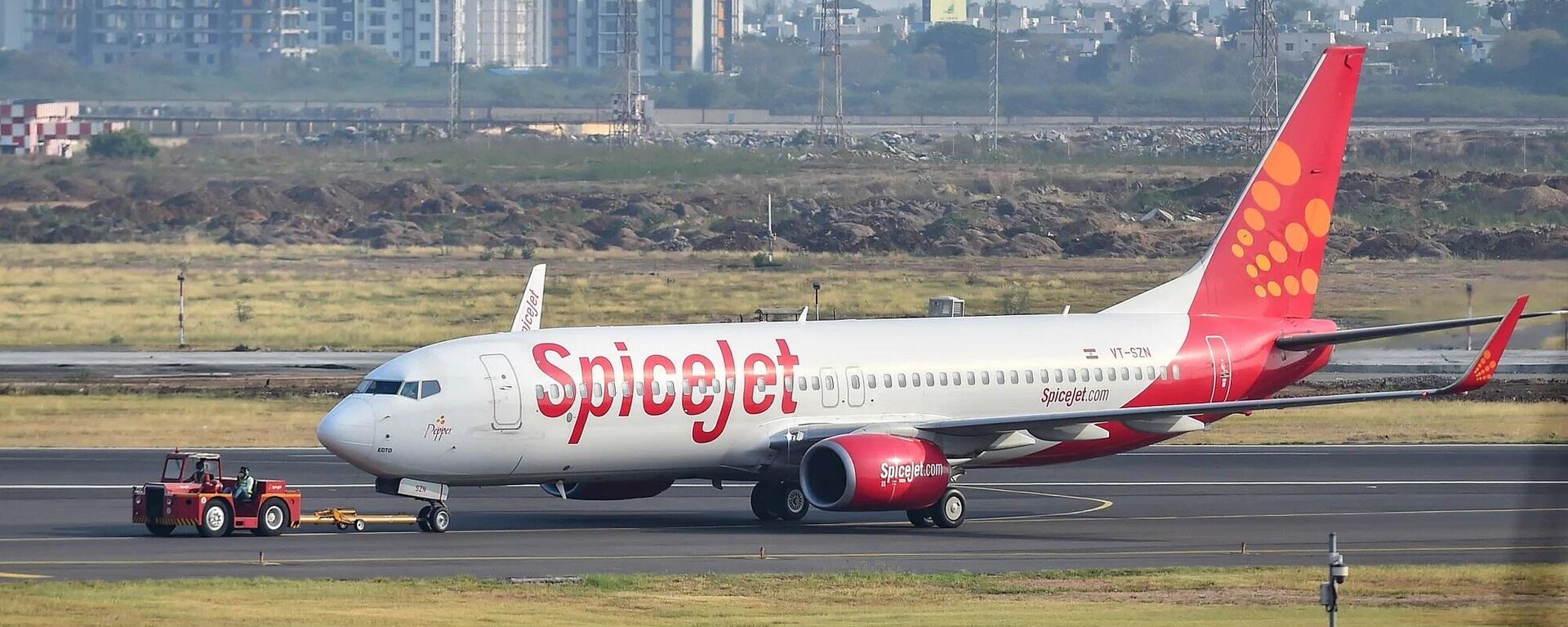
22 September 2022, 21:15 GMT
Following the two crashes, the FAA AEG learned that MCAS may have played a role in the accident and also learned that Boeing concealed important information about the malfunctioning system from the regulator.
To save face, Boeing entered into an agreement with the US DoJ in January 2021 to resolve a criminal charge related to a conspiracy to defraud the FAA AEG. The company
was ordered to pay $2.5 billion in penalties and compensations.
“Boeing’s employees chose the path of profit over candor by concealing material information from the FAA [Federal Aviation Administration] concerning the operation of its 737 Max airplane and engaging in an effort to cover up their deception," stated Acting Assistant Attorney General David P. Burns of the DoJ's Criminal Division at the time.
Two years later, US District Court Judge Reed O'Connor of the Northern District of Texas reopened the case, explaining his decision by the fact that the victims’ families were not included in the $2.5 billion settlement deal, which would be mandatory under the Crime Victims’ Rights Act.
O'Connor also ruled that "the crime victims' representatives" would be heard "at or in advance of the proceeding." He also stressed that Boeing "has no right to waive its appearance," meaning that the company will be formally charged in court and will have to plead guilty or not guilty.
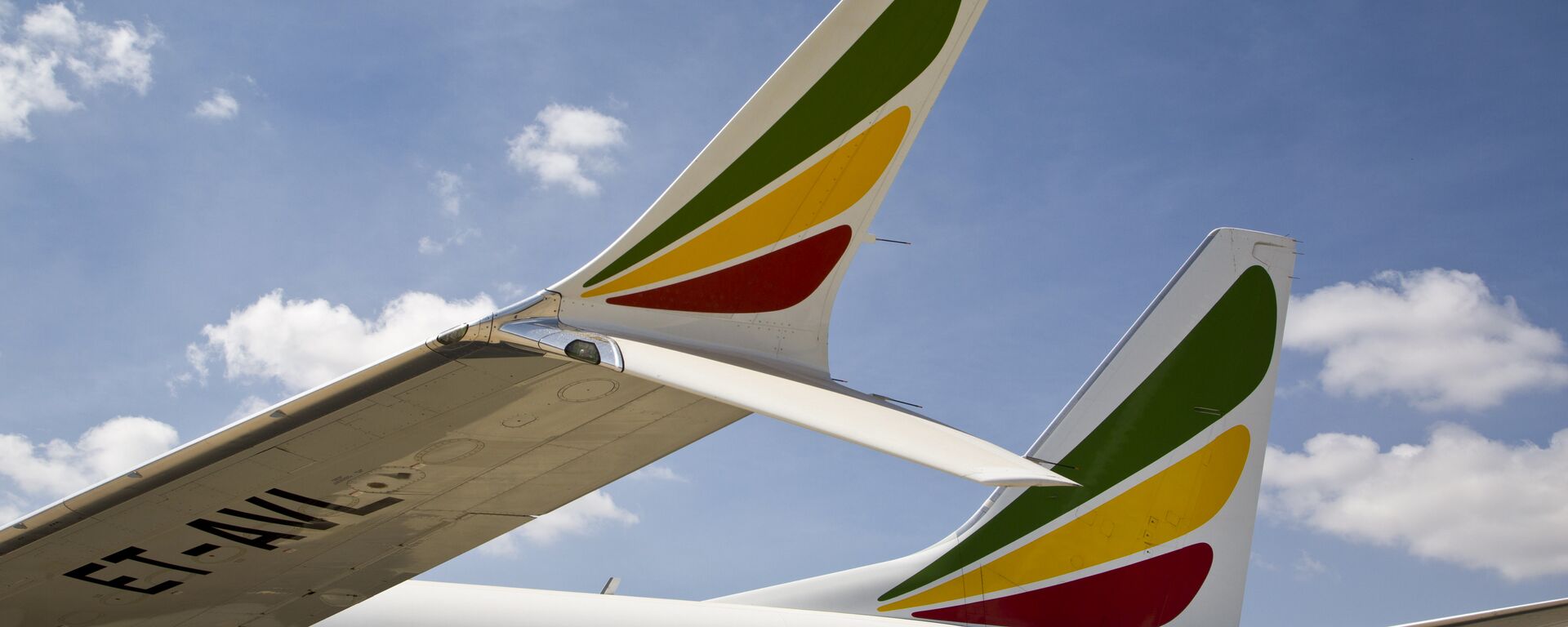
15 February 2021, 11:48 GMT
Unusual Rebuttal from US Government
However, an unusual government rebuttal of the Ethiopian Accident Investigation Bureau's (EAIB) December 2022 report related to the 2019 crash popped up in the US mainstream media earlier this week.
According to the US National Transportation Safety Board (NTSB), Ethiopian investigators’ report into the Boeing 737 Max crash outside Addis Ababa in 2019 falsely claimed the plane had an electrical failure.
"The final report does not provide any details to support the EAIB’s statements about the existence of an electrical problem," the NTSB wrote on January 13, 2023. The government agency argued that the failure was most likely caused by an impact with a bird at the moment the plane took off. It accused Ethiopian investigators of not looking for bird remains or other evidence of such a collision while examining the plane.
Even though US investigators generally agreed that a flawed design in the 737 Max pushed the plane's nose down, the NTSB insisted that the Ethiopian Airlines Group crew had been told how to counteract a failure of MCAS after the October 2018 crash of the Indonesian plane. According to the agency, the Ethiopian pilots failed to follow procedure.
On top of that, NTSB Chairwoman Jennifer Homendy accused Ethiopians of "not operating in good faith with the International Civil Aviation Organization (ICAO) rules."
"[W]e feel that we have to be very public where we think there were inaccuracies in the report and where we think it could be more comprehensive," Homendy told the US mainstream media.
Earlier, the French Bureau of Investigation and Analysis for Civil Aviation Safety – which participated in the investigation into the 2019 crash – also subjected the Ethiopian findings to criticism, accusing their African peers of allegedly erasing from its transcript of the cockpit recorder comments made by a copilot apparently showing he was confused.
US-Boeing Special Relationship
It's not the first time that the US government has stepped forward to shield Boeing.
In September 2010, the World Trade Organization’s Dispute Settlement Body released an interim report saying that Boeing had received illegal US government and state subsidies. The suit against Boeing was filed by the EU in October 2004 – on the very same day that the US initiated a WTO dispute against the European bloc for subsidies granted to Airbus. The trade face-off lasted for 17 years until Washington and Brussels resolved the dispute in June 2021.
The US government has a good reason to fight for Boeing. The company is one of the largest global aerospace manufacturers. It's also one of the largest defense contractors in the world, and the largest exporter in the United States. Boeing pays hefty taxes and spends a lot on lobbying.
According to OpenSecrets, Boeing forked out a whopping $9.1 million for lobbying in 2022, while in 2019, it spent $15.1 million lobbying the federal government.
Furthermore, Boeing has long maintained close ties with US top government officials. Speaking to Sputnik in November 2017, US peace activist Jan R. Weinberg lamented the US establishment's "revolving door" culture.
To illustrate his point, Weinberg noted that
then-US President Barack Obama assigned CEOs from Boeing, GE and Lockheed Martin to serve on his trade and employment advisory councils while they simultaneously served on the Business Roundtable, which is a very influential lobbying organization in its own right.
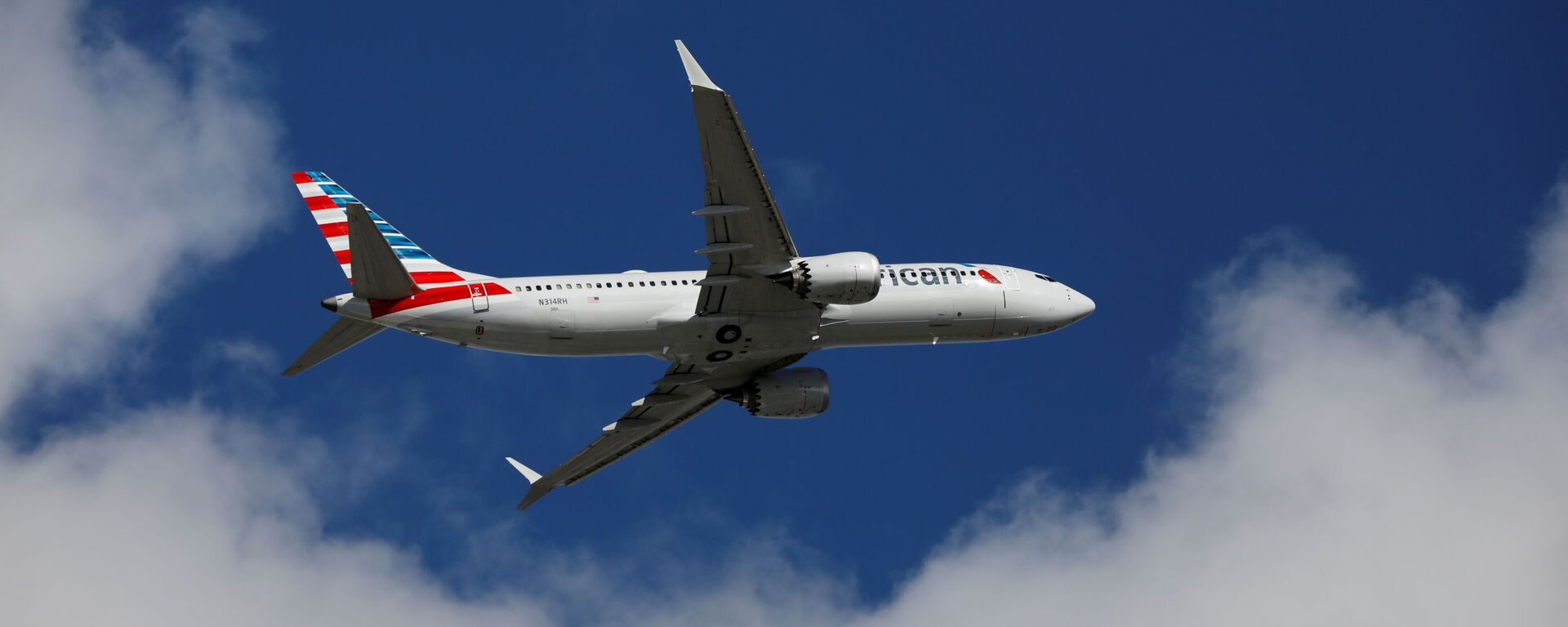
9 January 2021, 16:36 GMT
Thus, Boeing CEO James McNerney, the Business Roundtable Chairman, served at the same time as a member of the President's Export Council, whose main purpose was to advise on trade agreements, under Obama.
According to Weinberg, Obama's successor Donald Trump did virtually the same, opening the doors to US influential business contractors. For instance, Trump tapped a former Boeing executive, Patrick M. Shanahan, as acting defense secretary, and allowed Boeing chief executive Dennis Muilenburg to sit in on a phone call to an Air Force general managing the Department of Defense's (DoD) largest weapons program.
In March 2019, a US mainstream outlet acknowledged that Washington had maintained a "special relationship" with Boeing. Equally, it affirmed that US presidents "advocated" for the interests of "the national champion" for decades by flying on primarily two Boeing VC-25As that serve as Air Force One.
In addition, Boeing's role as one of the US largest defense contractors has taken on a new significance amid Washington's armament spree in Ukraine. In August 2022, the company received a $5 billion-worth Ground-based Midcourse Defense (GMD) System Integration, Test, and Readiness (SITR) contract award from the Missile Defense Agency.
Given all of the above, it raises questions about whether District Judge Reed O’Connor will take a hardball stance with regard to the influential company's reported negligence or will let it off the hook.
